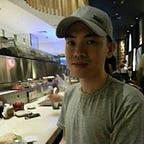Is making presentation slides a skill? Would you put it in your CV? If these questions strike a chord with you, then you might be a generalist. As a generalist myself, reading “Range” by David Epstein allowed me to have some sense of vindication that having broad knowledge is useful and even preferable in certain situations.
The book explained there are two types of learning environment: kind and wicked. In a kind learning environment, the rules are clear and repetition is important. Examples are golf & chess, where early specialization could make a huge difference. On the other hand, in a wicked learning environment, the rules are often not well established. This means different situations will require different responses. Think event organizing where no two events are the same. In this situation, having broad skills and experience can give advantages by making us more adaptable and creative. Sometimes knowledge from seemingly separated domains can lead to unexpected solutions. Famous example is how Steve Job’s experience with typography helped shape the distinct design of Apple devices and software.
A generalist is often called “a jack-of-all-trades, master of none”, which has a demeaning undertone in it. However, in an organization, someone who knows a lot of things can become a valuable asset. I once had a colleague who had worked on a lot of different projects. When someone unexpectedly quit, she was able to pick up the work until our manager could find a replacement. I found a useful analogy in a Japanese drama series “Izakaya Bottakuri” which further illustrates this point. There are a variety of kitchen knives with different purposes. But a chef usually has that one very “standard” knife that can be used to cut a broad variety of things. That knife is not better than the other knives in specific situations, but its versatility makes it valuable to have around in a kitchen. In the words of my favorite quote from the book: “A jack-of-all-trades is a master of none, but oftentimes better than master of one”.
“A jack-of-all-trades is a master of none, but oftentimes better than master of one” — David Epstein, “Range”
The book also argued the importance of the “sampling” period, where we are trying a bunch of different things to find out which ones will stick. It argued that instead of specializing too early, it is often better for the long-term to be slow in the beginning. It gives examples of famous sportsmen / sportswomen, musicians, and painters who spent substantial time playing different sports or instruments, or dabbling in multiple art styles before finally making histories in their chosen area of expertise. In this regard, the book warned parents who are too eager to make their children specialize in one thing before they have tried enough different things to know what they really want to do.
Forbes Indonesia just recently released its coveted “30 under 30” list. Reading the accomplishments of these people can be discouraging. “What did I do when I was of their age?”, “What have I done with my life?”. But it is important to note that for the majority of people, it can take a lifetime to know what one’s life purpose is. The book’s final message is this:
“Don’t feel behind. Compare yourself to yourself yesterday, not to younger people who are not you”.
